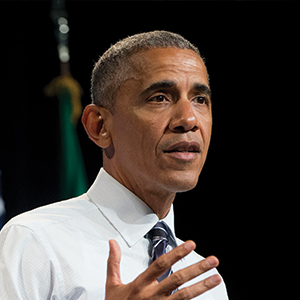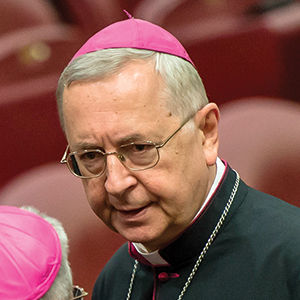Church leaders and representatives around Europe reacted with dismay to the referendum vote by British citizens to leave the European Union, while also urging the EU to rethink its values and priorities.
“We respect the British decision – but we cannot forget unity is better than division, and that European solidarity is an achievement of many generations,” said Archbishop Stanislaw Gadecki (right), president of the Bishops’ Conference in Poland, one of several countries likely to be affected substantially by Britain’s exit.
“For Christians, the building of unity between peoples, societies and nations is a key summons, ordained by Christ Himself. We are convinced this Christ-like unity is the true source of hope for Europe and the world.”
Britain voted 51.9 per cent to 48.1 per cent to leave the 28-country EU, on a 72.2 per cent turnout.
Archbishop Gadecki told the Polish Catholic news agency, KAI, the EU’s “methods of functioning” included “many worrying features”, but said he remained hopeful “the union of European nations, built on Christ” would prevail in a “civilisation of love”.
However, the Polish Church’s former primate condemned the British decision and warned the EU’s “purely declaratory notion of solidarity” would have to be “rethought from the beginning”.
“Brexit is the outcome of separatist, populist and egotistical tendencies, shown at personal and social level, which have been discernible for a long time in Europe. I fear this decision won’t serve Great Britain, Europe or the world,” Archbishop Henryk Muszynski said. “There will be no European unity unless it becomes a unity of community. Europe is a political and economic union, which increasingly lacks any spiritual adhesive. It’s departed from the Judaeo-Christian values it was built on and left a void in their place.”
During his flight to Armenia on Friday, the Pope told journalists the referendum vote “expressed the will of the people”, and said it imposed a “great responsibility” on everyone to “ensure the wellbeing and coexistence of the whole European continent”. On the return flight to Rome he said he had not had time to study the reasons for the British vote, but noted that it showed “divisions,” which could also be seen in other countries. “Fraternity is better, and bridges are better than walls,” he said, but he acknowledged that there are “different ways of unity”.
Meanwhile, the Brussels-based Commission of European Bishops’ Conferences marked the referendum by displaying a “Prayer for Europe” by Cardinal Carlo Martini (1927-2012) on its website, which invoked God’s help “in committing ourselves to a Europe of the Spirit, founded not just on economic treaties but on human and eternal values; a Europe capable of ethnic and ecumenical reconciliation, quick to welcome the stranger, respectful of human dignity”.
In Germany, the Catholic Church’s youngest ordinary, Archbishop Stefan Hesse of Hamburg, branded the vote a “step backwards for a united Europe”, while in Austria Bishop Ägidius Zsifkovics of Eisenstadt described it as “a wake-up call for a new European humanism”, and said he hoped the dream of European unity would not be “buried by self-serving grave-diggers”.
“We must warn against the rise of provincial mentalities and group egoisms – transnational problems and challenges cannot be solved nationally,” Bishop Zsifkovics, speaking for the Austrian Church, told Kathpress.
In several commentaries, France’s Catholic La Croix daily said the four-month campaign around the referendum had unleashed “often alarming passions”. The newspaper added that the Brexit vote would force EU leaders to contain the possible “contagion” of parallel referendum demands in other member states.
The Belgian church’s Cathobel news agency said the British vote had “damaged the dream of Europe” enunciated by the EU’s Catholic founding fathers – Robert Schuman, Jean Monnet, Paul-Henri Spaak and Alcide de Gasperi – and would fuel “the rise of extremist party populism” visible during the refugee crisis.
“An adventure’s end also marks the beginning of a new one – if a dream is damaged, we must give birth to a new dream,” the Catholic news agency said. “But the [vote] also means the failure of a certain humanism, the politics of the outstretched hand, openness to others, a certain moral code – and of the ambition to build a more fraternal world above the fears and hostilities. It means the victory of everyone for themselves, of individualism and nationalism.”
In France, Archbishop Jean-Pierre Grallet of Strasbourg said he had been left with “feelings of sadness” that “what we have long fought for has been contradicted”. But he said many French citizens shared the view that the EU had been “enlarged too much and too quickly”, and had “privileged economic accords to the detriment of other values and feelings of belonging”.
30 June 2016, The Tablet
Churches dismayed at Brexit but send warning to Brussels
 Loading ...
Loading ...
Get Instant Access
Subscribe to The Tablet for just £7.99
Subscribe today to take advantage of our introductory offers and enjoy 30 days' access for just £7.99



